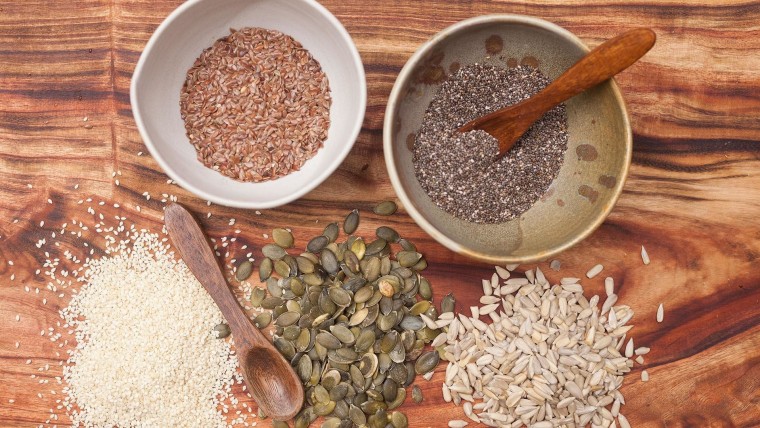Is Canadian Bacon Ok on Keto Diet
You probably know about the ketogenic diet. However, the benefits of ketosis, the best methods in which to measure it and the ideal dietary components of keto may be something you don't know. The keto diet has been around since 1921 when it was developed as a therapeutic diet for certain conditions. Throughout the past five years, however, interest beyond its initial therapeutic nature has rocketed.
What is ketosis?
The body always seeks out glucose (and its stored form, glycogen) for fuel. Limiting carbohydrates mean limiting the body's favorite fuel — and so it must adapt.
The alternative solution is to burn stored fat instead. The metabolic shift from burning glucose to fat produces ketones. Ketones are important because while the body is burning fat for energy, the brain doesn't have the ability to do this. Instead, the brain will fuel on ketones produced by the liver instead. Once the body fuels on fat and the brain fuels on ketones, you are in ketosis.
What is the ketogenic diet?
The keto diet is one in which you drain your liver glycogen stores and force the body to find that alternative fuel. In addition to limiting carbohydrates to achieve this, protein content may also need to be reduced. That's because protein actually has a small insulin-stimulating effect, which suppresses ketone creation.
What can you eat on the keto diet?
Achieving ketosis requires significantly reducing your carbohydrate consumption (ketosis can also be achieved through various forms of fasting). That doesn't mean the diet is all bacon, all the time. Healthy fats, such as avocado and olives can be central components of the diet in addition to non-starchy vegetables, nuts and seeds and sources of protein like fatty wild fish, eggs and chicken.
Coconut oil and full-fat dairy such as hard cheese may also be included. Recent studies have also found that a more flexible approach (20-50g of carbohydrates) can still result in ketosis and weight loss, and may include more plant-based fiber derived from previously eliminated nuts and non-starchy vegetables. This makes the diet less restrictive and more sustainable over time.

Why is the keto diet bad for you?
While TODAY's Al Roker is a big fan of the keto diet, the nutrition plan has its fair share of critics. The reality is that any diet can be made unhealthy. The benefit or harm of the keto diet will depend on the dietary pattern chosen.
Very low-carbohydrate diets that lack sufficient vegetables and other important phytonutrients may harm health in the long-term, but a keto plan that includes fiber-rich plants, healthy fats and moderate protein can be beneficial to weight management and reduce and manage chronic disease.
Constipation may occur, but can avoided through consumption of higher fiber foods. Additionally, many individuals will experience what is commonly known as the "keto flu" which are unpleasant symptoms that can occur when the body is transitioning from a carb- to fat-burning mode. These are short-term and subside as the body enters ketosis.
Who is a keto diet good for?
Multiple benefits have been associated with the ketogenic diet. A 2021 study comparing a low-fat diet with a ketogenic diet found that the keto participants had more stable blood sugar and insulin levels, despite eating more calories. This is critical, as recent data indicates that unstable blood glucose levels can increase appetite and lead to weight gain.
Another study, published in 2020 assessing low-carb diets in older individuals found improvements in body composition, fat distribution and metabolic health. The diet may also play a role in reducing inflammation, management of Type 2 diabetes and may even help enhance cancer treatment.
How do you know when your body is in ketosis?
As a dietitian, I often tell my patients you don't know what you can't measure. Increased ketone production is a sure sign of ketosis and can be monitored through the breath, blood and urine, but the accuracy of these methods and the frequency of testing vary greatly.
Since ketones change quite a bit, much like blood sugar, it is important to check levels of ketosis as they are impacted by food and exercise, ideally three to five times per day. Urine strips are the least expensive but least accurate. For accuracy, blood ketone meters or a clinically-backed breath ketone device are often the best bet.
Is the keto diet safe?
Studies show that low-carbohydrate diets can be a safe and effective way for people diagnosed with Type 2 diabetes or prediabetes for normalizing hemoglobin levels, reducing the risk of hypoglycemia and assisting in weight loss.
Ketogenic diets, however, are not for everyone and should be avoided by children and teens, people with Type 1 diabetes, pregnant people and individuals with disorders of the kidneys, gall bladder, pancreas and liver. Talking with your physician first and working with a registered dietitian is recommended before starting on the ketogenic diet to reduce risks and improve short-term and long-term success for weight loss and overall health.
Kristin Kirkpatrick consults for various nutrition and dietary brands.
Kristin Kirkpatrick
Kristin Kirkpatrick, MS, RDN, former lead dietitian at Cleveland Clinic and founder and president of KAK Consulting, LLC., is an award-winning dietitian, best-selling author and nationally recognized speaker and writer. Follow Kristin while she works to help people live longer and better @fuelwellwithkrissy, with the world's greatest need in mind, good health.
Is Canadian Bacon Ok on Keto Diet
Source: https://www.today.com/health/what-keto-everything-know-about-ketogenic-diet-t217117